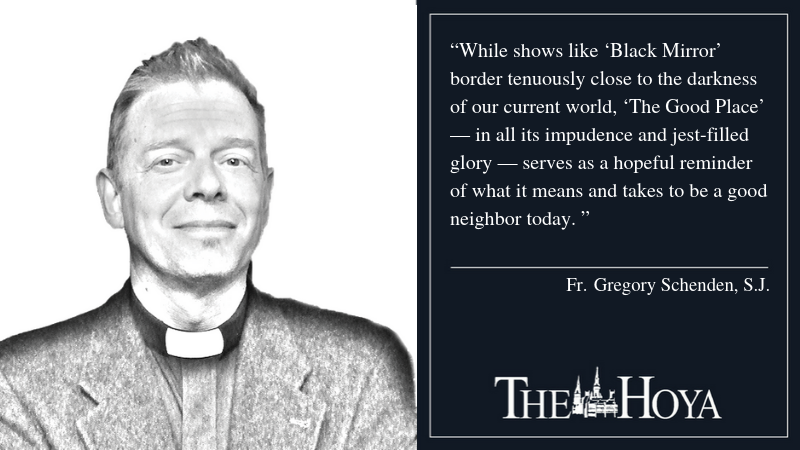Ever since I used to stay up late on summer nights as a child to watch old reruns of “The Twilight Zone,” I’ve had an affinity for the representation of dystopia in the arts. Be it “Blade Runner,” “The Handmaid’s Tale” or anything by Kurt Vonnegut, I always found dystopian tales to be a thrilling encounter.
I suppose a facet of my appreciation for the dystopian is its saturnine brand of escapism. Dystopian tales offer the audience a thrilling venture into a darker, bleaker domain while simultaneously allowing us to recognize that matters could be a lot worse.
Recently, though, that all changed. Whether the world possibly did get a lot worse, or that my favorite series started getting a bit too real — curse you, “Black Mirror” — my love of all things dystopian withered. The tales no longer provided compelling entertainment but rather anxiety and dread. I needed something different. While I appreciated all the recommendations to binge “The Great British Bake Off,” I longed for something uplifting, irreverent and provocative all wrapped into one — which led me to “The Good Place.”
The premise is inspired. The selfish and ethically challenged Eleanor Shellstrop, played by Kristen Bell, dies a rather ignominious death by way of shopping carts. In a brilliant bureaucratic error, she is sent by accident to the Good Place, a pleasant afterlife engineered by Michael, some sort of mid-management divine being played by Ted Danson.
It soon becomes clear to Eleanor that she has been sent to the wrong place. Acceptance to the Good Place is based on good deeds during one’s earthly existence. Eleanor quickly realizes she should have been sent to the Bad Place for her myriad shortcomings.
Rather than admit the truth, Eleanor strikes a deal with a moral philosophy professor named Chidi, played by William Jackson Harper. The arrangement is simple: Chidi will school Eleanor in basic ethical principles to help her become a good person, thus preserving her residency in the Good Place for all of happy eternity.
Never has the philosophical trek been so raucously entertaining. From Aristotle to Kant, deontology to utilitarianism, “The Good Place” serves as a gratifying, comic exploration into the questions of what it means to be a good person — or not — and why one should be a good person — or not.
While all the philosophy might sound rather heavy-handed, “The Good Place” brilliantly manages to carry it out in a manner that allows slapstick comedy and irreverence to coexist with tragedy and hardship.
At the heart of the series’ matter is the quest to be an authentically good person — a quest that necessitates authentic, compassionate relationships.
Having now caught up with the series, I am reminded of Fr. Howard Gray, S.J.’s last Sacred Lecture in Dahlgren Chapel in April. In a talk titled “The Centrality of the Good Person in Jesuit Education,” Gray centered his comments on the parable of the Good Samaritan from the Gospel of Luke.
Gray identified four movements in the parable’s paradigm that illustrate the formation of what it means to be good in a Jesuit educational system.
Firstly, the parable — and, consequently, Jesuit education — teaches people to see, to be aware of those around them. Secondly, it teaches people to have a heart, to be empathetic and compassionate. Next, people are taught to assess and use their own talents in the circumstances they witness and to respond out of the aforementioned empathy and compassion. Finally, such a paradigm teaches individuals to create a community rooted in and dedicated toward this way of life.
While shows like “Black Mirror” border tenuously close to the darkness of our current world, “The Good Place” — in all its impudence and jest-filled glory — serves as a hopeful reminder of what it means and takes to be a good neighbor today. And while I may someday return to the dystopic realms of “A Scanner Darkly,” for now I’m quite content with Eleanor, Michael and the crew as they more fully live as good persons in the Good Place. While not denying the darkness, I choose hope.
Fr. Gregory Schenden, S.J., is the Catholic chaplain at Georgetown University. As This Jesuit Sees It appears online every other Thursday.














